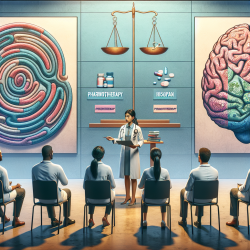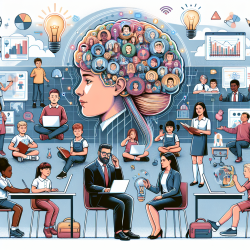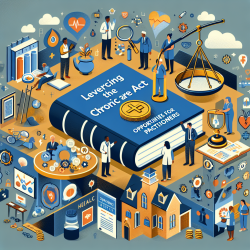As a Special Education Director, I often encounter the transformative power of technology in special education. One such technology is the cochlear implant, a device that has brought the gift of hearing to many children and adults. However, the success of cochlear implants is not solely dependent on the device itself but also on the quality of rehabilitation that follows. In this blog, we will explore the insights from the research article "Cochlear Implant Rehabilitation in Children and Adults" by Dianne J. Allum and discuss how practitioners can improve their skills and outcomes in cochlear implant rehabilitation.
The Importance of Comprehensive Rehabilitation
The article highlights the necessity of a well-rounded rehabilitation program that addresses various aspects of auditory and speech development. Here are some key takeaways:
- Customized Rehabilitation Plans: Each cochlear implant recipient is unique, and their rehabilitation program should be tailored to their specific needs, age, and progress.
- Multidisciplinary Approach: Effective rehabilitation often involves a team of professionals, including audiologists, speech-language pathologists, and educators.
- Parental Involvement: Parents play a crucial role in the rehabilitation process, especially for young children. Providing them with the necessary training and support can significantly enhance outcomes.
- Use of Technology: Incorporating modern technology and tools, such as online therapy platforms like TinyEYE, can provide additional support and flexibility in the rehabilitation process.
Encouraging Further Research and Professional Development
The field of cochlear implant rehabilitation is constantly evolving, and staying updated with the latest research and techniques is essential for practitioners. Here are some ways to encourage continuous learning and improvement:
- Attend Conferences and Webinars: Participating in professional conferences and webinars can provide valuable insights and networking opportunities.
- Read Professional Publications: Subscribing to journals and magazines related to audiology and speech-language pathology can help practitioners stay informed about new developments.
- Join Professional Associations: Becoming a member of professional associations can provide access to resources, training, and support from peers in the field.
- Engage in Peer Collaboration: Collaborating with colleagues and sharing experiences can lead to new ideas and improved practices.
Conclusion
Enhancing skills in cochlear implant rehabilitation requires a commitment to continuous learning and a multidisciplinary approach. By staying informed about the latest research and techniques, practitioners can provide the best possible support to their patients, helping them achieve their full potential.
To read the original research paper, please follow this link: Cochlear Implant Rehabilitation in Children and Adults.










